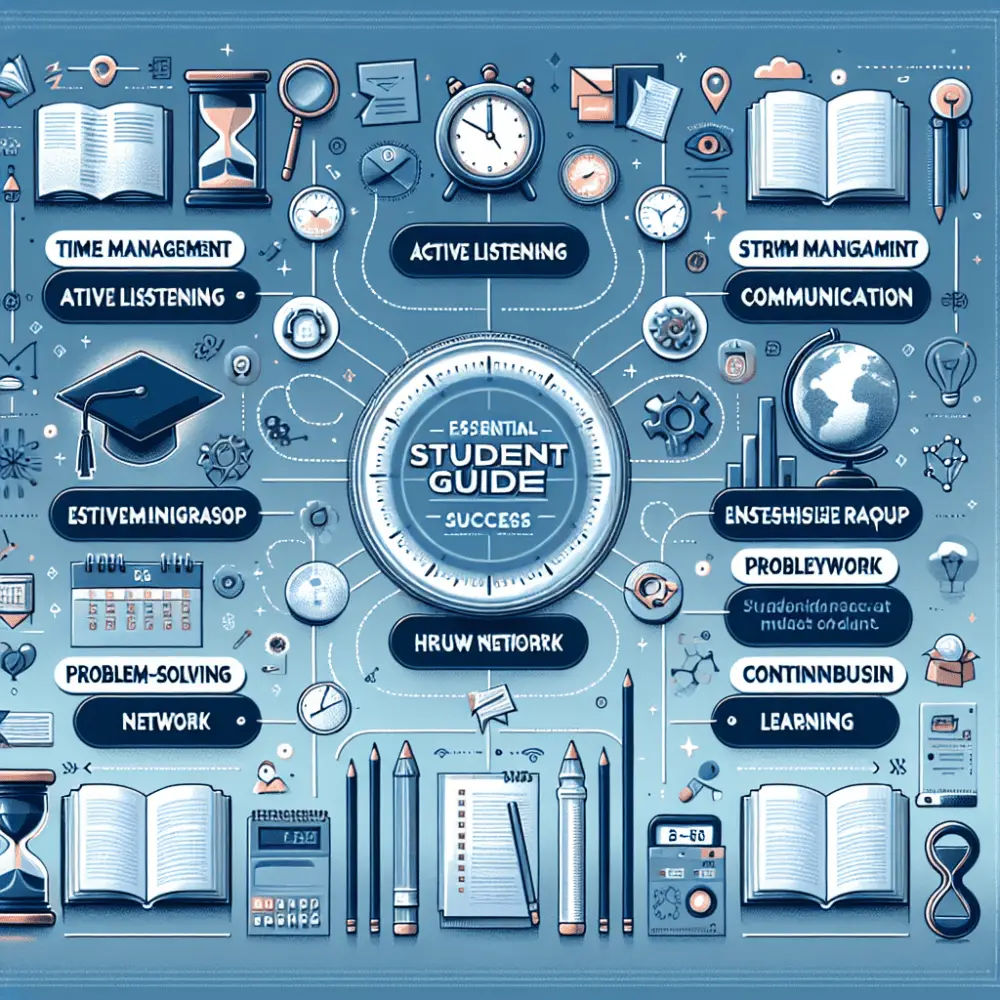
As a student guide, it is essential to have the right tools and strategies to succeed in your role. Whether you are a seasoned pro or just starting out, there are always new tips and tricks to help you excel. In this comprehensive guide, you will learn valuable insights on how to become a successful student guide. From building strong relationships with students to managing your time effectively, these essential tips will set you up for success in guiding and supporting others on their academic journey.
Being a student guide is more than just a job – it is a rewarding opportunity to make a positive impact on the lives of your peers. By following these essential tips, you can maximize your effectiveness as a guide and create meaningful connections with those you are supporting. So, without further ado, let’s dive into the top strategies for student guide success.
Build Trust and Rapport
One of the most important aspects of being a successful student guide is building trust and rapport with the students you are guiding. This starts with being approachable, empathetic, and understanding. Show genuine interest in their academic goals and challenges, and be willing to listen and offer support whenever needed.
When students feel comfortable talking to you, they are more likely to open up about their struggles and seek guidance. Make an effort to remember their names, interests, and preferences – this personal touch can go a long way in building strong relationships. Remember, trust is earned over time through consistent actions and genuine care.
Communicate Effectively
Clear communication is key to being an effective student guide. Be proactive in reaching out to students, whether it’s through email, text messages, or in-person meetings. Keep them informed about important deadlines, events, and resources that can help them succeed.
Listen actively when students share their concerns or questions, and provide clear answers and guidance. Avoid using jargon or complicated language that may confuse them – aim for simplicity and clarity in all your communications. Encourage open dialogue and create a safe space where students feel comfortable expressing themselves without fear of judgment.
Set Clear Goals
To help students stay focused and motivated, it’s important to set clear goals for their academic journey. Work with each student individually to identify their strengths, weaknesses, and aspirations – then create a plan that outlines specific objectives they can work towards.
Break down larger goals into smaller milestones that are achievable within a reasonable timeframe. Celebrate their successes along the way to keep them motivated and engaged. Regularly review progress together and make adjustments as needed to ensure they stay on track towards achieving their academic goals.
Provide Supportive Resources
As a student guide, it’s crucial to connect students with supportive resources that can help them succeed academically. This may include tutoring services, study groups, academic workshops, or counseling support. Familiarize yourself with these resources so you can easily refer students who may benefit from them.
In addition to academic resources, don’t forget about mental health support services that can help students manage stress or other emotional challenges they may be facing. Encourage students to prioritize self-care activities such as exercise, healthy eating habits, adequate sleep, and mindfulness practices for overall well-being.
Manage Your Time Wisely
As a student guide balancing multiple responsibilities such as academics or extracurricular activities alongside your guiding duties, effective time management skills are essential. Keep track of important deadlines, meetings, and discussions by using tools like calendars, planners, or apps. Prioritize tasks based on urgency and importance. Delegate tasks where appropriate so you don’t feel overwhelmed by the workload. Learn to take breaks and recharge your energy levels. Set boundaries around your time and don’t forget about self-care amidst all responsibilities.
Celebrate Achievements
No accomplishment is too small. Celebrate every achievement, no matter how big or small. Recognize efforts, progress, and achievements by acknowledging and praising them. Allow students to feel valued and appreciated. Acknowledge the hard work and effort they put in. Rewarding them positively reinforces positive behavior and encourages more of the same. Let everyone know you are proud of what they have accomplished, even if it seems insignificant. Encourage further growth, development, and continued success.
Seek Feedback
Continuous improvement is key to success, and seeking feedback helps identify areas for improvement, strengths, and weaknesses as a student guide. Ask for feedback regularly from both students and fellow guides or supervisors. Don’t take feedback personally; use constructive criticism to grow and develop into a better guide. Value the input of others and learn from their experiences to build upon your own.
Frequently Asked Questions (FAQ)
Q: How do I build trust and rapport quickly?
A: Building trust and rapport happens over time and requires effort and patience. Be approachable, empathetic, and show genuine care and interest. Actively listen and provide support when needed.
Q: What is the best way to communicate effectively?
A: Clear communication is key to effective guiding. Be proactive in reaching out, keep students informed of important information, simplify your language, and encourage open dialogue.
Q: How do I provide supportive resources?
A: Connect students with supportive resources like tutoring services, workshops, and counseling support. Identify their needs and refer them accordingly.
Q: What do I need for successful time management?
A: Effective time management skills involve balancing multiple responsibilities, prioritizing tasks, setting boundaries, taking breaks, and prioritizing self-care.
Q: How do I celebrate achievements effectively?
A: Celebrate every achievement, recognize efforts, progress, and acknowledge and praise their work. This helps them feel valued and encourages further growth.
By following these essential tips, you can become an effective and successful student guide, making a positive impact on the academic journeys of your peers. Implement these strategies to build trust, communicate clearly, set goals, provide resources, manage your time, celebrate achievements, and seek feedback. These steps will help you excel in your role and support others in achieving their academic goals.












